In November 2020, a phase II clinical trial reported extremely successful results. This clinical trial of a PDE4D inhibitor from Tetra Pharmaceuticals was conducted by Dr. Elizabeth Berry-Kravis at Rush University Medical Center and funded by FRAXA Research Foundation. In this Simons Foundation lecture, Elizabeth Berry-Kravis traces 30 years of Fragile X research, from identifying its cause, through finding dozens of treatment targets, through a series of disappointing clinical trials.
Read more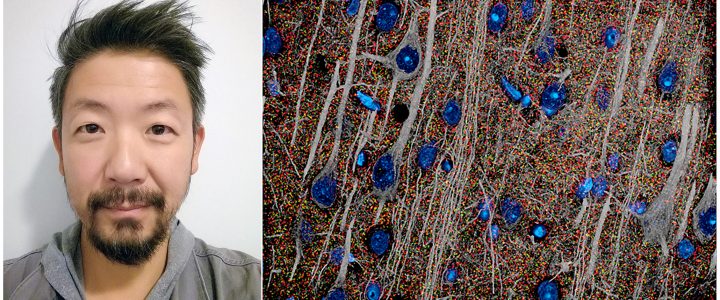
Screening Combinatorial Pharmacological Therapies for Fragile X Syndrome
FRAXA Research Foundation has awarded a $90,000 research grant to Stanford University principal investigators Dr. Philippe Jacques Mourrain and Dr. Gordon Wang, along with postdoctoral fellow, Dr. Rochelle Coulson. They are evaluating additive effects of combinatorial drug treatments to correct a broad spectrum of deficits observed in Fragile X syndrome.
Read more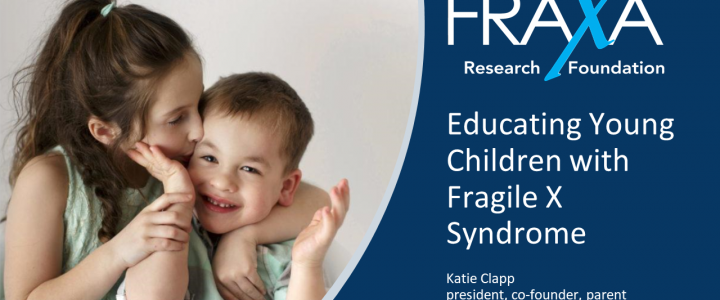
Educating Young Children with Fragile X Syndrome
When a team of elementary school teachers and therapists asked us to share strategies for working with young children who have Fragile X syndrome, we developed this session featuring tips, techniques, and stories. Katie Clapp, co-founder of FRAXA Research Foundation and parent of a young man with Fragile X, and Tracy Antonelli, whose two teenage boys have Fragile X, present this session to help teachers assist their students.
Read more
Parkinson’s Therapy May Hold Promise for Fragile X
A study funded by FRAXA in Italy has encouraging results for people with Fragile X: drugs that block adenosine receptors (A2A) reversed signs of Fragile X in a mouse model.
“One of the most intriguing things about this study is that it points to an entire drug class (not just the one drug used) as potentially therapeutic for Fragile X. Many available compounds block A2A receptors, and we know they are safe and effective.
Read more
The Why and How of FRAXA’s Work to Find a Cure for Fragile X
Thank you Talk Fragile X for having FRAXA’s cofounder Katie Clapp as a guest on your podcast! It was a pleasure to share why FRAXA got started and our motivation for finding effective treatments and ultimately a cure for Fragile X syndrome.
Read more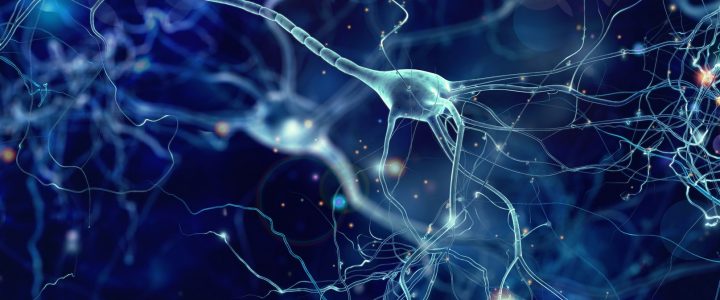
Beneath the Surface of Fragile X Syndrome: Study Sheds Light on What’s Happening in Nerve Cells
This FRAXA-funded project has turned up some surprising results. At first, it might seem Kurosaki and Maquat have found yet another cellular process which is malfunctioning in Fragile X. But this finding is intimately related to previous findings of abnormal protein synthesis and misregulated transcription in Fragile X. FMRP (the protein lacking in Fragile X syndrome) is involved in chaperoning messenger RNAs within cells to active sites, and in controlling their translation into many different proteins. Some of these proteins are transcription factors, which feed back to the nucleus to control gene expression.
Read more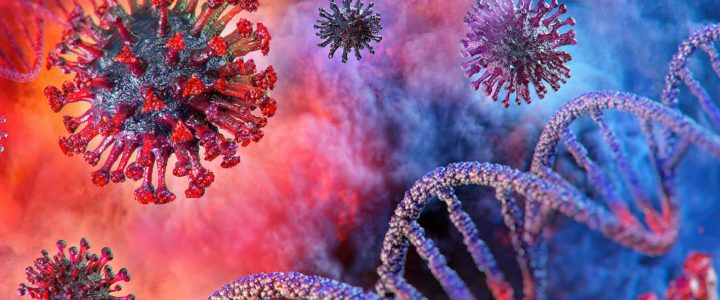
COVID-19 Vaccines Pose Little Risk to Rare Disease Patients, FDA, CDC Say
The two COVID-19 vaccines that recently received emergency approval from the US and other worldwide regulatory agencies are expected to pose little risk to the rare disease community, including to patients with compromised immune systems or those participating in gene therapy studies.
Read more
Starting 2021 Filled with Gratitude and Determination!
2020 was a year we will never forget. Because of this incredible community and dedicated supporters, we were able to pull through the most difficult year most of us have experienced.
Read more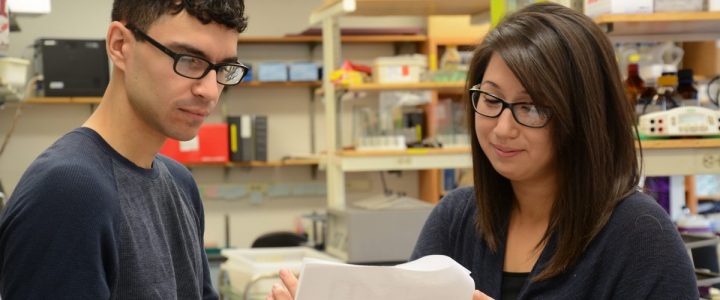
Fragile X Research Funding of $1 Million Offered for 2021
FRAXA plans to fund $1 million for a generous number of Fragile X research grants and fellowships in 2021. Our mission is to find specific treatments and ultimately a cure for Fragile X syndrome. We aim to bring practical treatment into current medical practice as quickly as possible; we prioritize projects that have a clear practical application and the results of which will be shared in a timely fashion.
Read more
Integrating Human and Mouse Studies in Fragile X Syndrome – an NIH Center Approach
Presentations by:
Craig Erickson – Translational medicine and mechanistic studies of brain neurophysiology in Fragile X Syndrome: A NIH Center Overview
Ernest Pedapati – Network Mechanisms, Biomarkers, and Pharmacology of Fragile X Syndrome in Humans
Devin Binder – Network Mechanisms of Neurophysiology and Behavior in mouse models of Fragile X Syndrome
Kimberly Huber – FMRP Regulation of local and long-range neocortical circuits in the mouse: Links with EEG phenotypes

Developing Arbaclofen for Fragile X – Dr. Mark Bear 1:1 with FRAXA
Seven years ago, arbaclofen (STX209) was pulled from development, disappointing families around the US. Now MIT professor and FRAXA Investigator Dr. Mark Bear has founded Allos Pharma to bring it back. Dr. Bear sat down with FRAXA co-founder Katie Clapp to share the story and next steps.
Read more
Interrogate the Functions of FMRP in Brain Development Using Stem Cells
Dr. Xinyu Zhao of the Waisman Center and Department of Neuroscience at University of Wisconsin-Madison joins us in this seminar to present Interrogate the Functions of FMRP in Brain Development Using Stem Cells.
Read more
Towards Understanding the Role of FMRP in Human Brain Development Using Brain Organoids
Dr. Zhexing Wen and Dr. Peng Jin of the newly funded Fragile X Center of Excellence at Emory University School of Medicine join us in this seminar to present about Understanding the Role of FMRP in Human Brain Development Using Brain Organoids.
Read more
Sincere Gratitude for a Successful #GivingTuesday 2020
From the bottom of our hearts, thank you. In a year filled with so much uncertainty, you truly rose to the occasion. From creating Facebook fundraisers to sharing why you give back, each one of you made a difference. With the help of our dedicated supporters and gifts from over 150 amazing donors, FRAXA Research Foundation raised $70,047 on #GivingTuesday.
Read more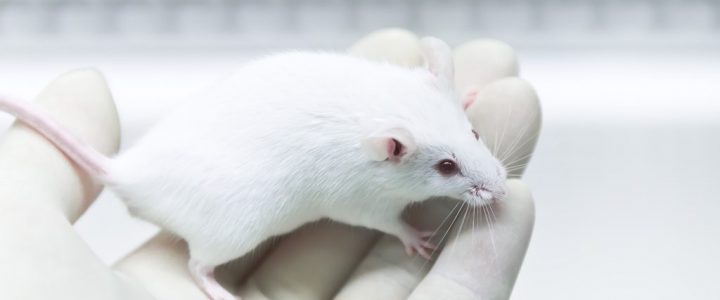
Bryostatin-1 in Long-term Use Seen to Arrest Fragile X Symptoms in Mouse Model
Long-term, but not short-term, treatment with bryostatin-1 — Neurotrope’s lead investigational therapy — arrested such behavioral and cognitive symptoms as hyperactivity, difficulties with daily life activities, and learning and memory deficits in a mouse model of Fragile X syndrome.
Read more
Allos Pharma Revives Arbaclofen After 7 Years: New Hope for Fragile X Syndrome
Experience the revival of arbaclofen as Allos Pharma Inc launches a new development program, providing renewed hope for the Fragile X community. Discover the impact of this experimental drug and the determination of those who never gave up.
Read more
Positive Results Reported in Phase II Fragile X Clinical Trial of PDE4D Inhibitor Zatolmilast from Tetra Therapeutics
Today, Tetra Therapeutics announces the first unequivocally positive phase 2 clinical trial in Fragile X syndrome, press release below. The results do not depend on carving out a subset of patients or post hoc analysis.
Read more
Overcoming the Placebo Effect in Fragile X Clinical Trials
In a placebo-controlled clinical trial, some participants are given an experimental medication, while others are given a placebo. Participants do not know whether they are taking medicine or placebo. In theory, this can allow researchers to rule out the placebo effect by comparing outcomes among the two groups. But, per Wexler (2020) “having a strong placebo effect can obscure any real effect of the therapy being investigated”.
Read more
Zygel May Improve Behavior in Children With Severe Fragile X, Trial Data Suggest
Zynerba presented clinical trial results for Zygel at a recent neurology conference. Zygel, an experimental cannabidiol (CBD) gel, may reduce behavioral abnormalities in children with Fragile X syndrome who have more severe disease.
Read more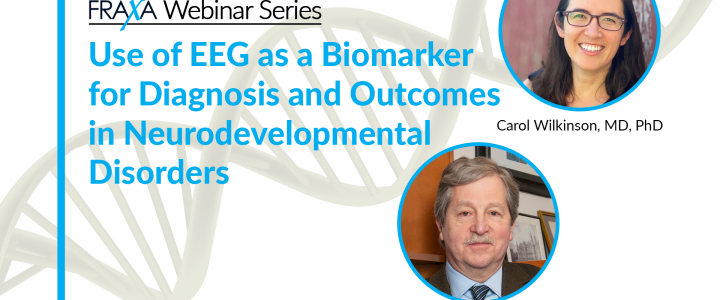
Use of EEG as a Biomarker for Diagnosis and Outcomes in Neurodevelopmental Disorders
A series webinars focused on current topics in Fragile X research featuring Charles A. Nelson III, PhD, Professor at Harvard Medical School and Carol Wilkinson, MD, PhD, Instructor at Boston Children’s Hospital.
Read more
Centers for Collaborative Research in Fragile X Receive $25 Million Over Next 5 Years
National Institutes of Health (NIH) has announced funding for three Centers for Collaborative Research in Fragile X. The centers will receive $25 million over the next 5 years. Funding for the centers comes from the Eunice Kennedy Shriver National Institute of Child Health and Human Development (NICHD), National Institute of Mental Health (NIMH), and the National Institute of Neurological Disorders and Stroke (NINDS).
Read more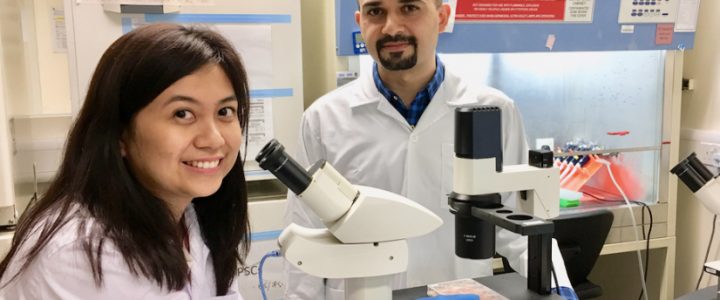
Genome-wide Screen for FMR1 Reactivation in Human FXS Neural Cells
Drs. Mahmoud Pouladi and Kagistia Utami at the Agency for Science, Technology and Research (A*STAR) in Singapore were awarded a $67,500 research grant from FRAXA Research Foundation and that led to much greater governmental funding to expand this work. Their goal is to reactivate the gene which is silenced in people who have Fragile X syndrome.
Read more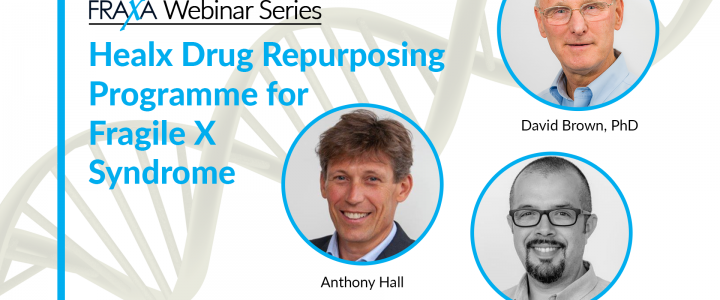
Healx Drug Repurposing Programme for Fragile X Syndrome
David Brown, MD, PhD, Ivan Angulo-Herrera, PhD and Anthony Hall of Healx present about the Drug Repurposing Programme for Fragile X syndrome.
Read more
FRAXA Biotech Games™ 2020 Won by Ginkgo Bioworks
FRAXA Biotech Games brought together the biotech community to network in a friendly setting, form new relationships and potential collaborations while raising money for a great cause! Teams competed for the Cup and for camaraderie, bragging rights, and company pride.
Read more
Yale Researcher Dr. Elizabeth Jonas 1:1 with FRAXA
We talk with Dr. Elizabeth Jonas, Professor of Internal Medicine and Neurology at Yale School of Medicine, about her new research suggesting that leaky mitochondria cause some symptoms of Fragile X syndrome. Leaky membranes may also be involved in Parkinson’s Disease and other diseases.
Read more
